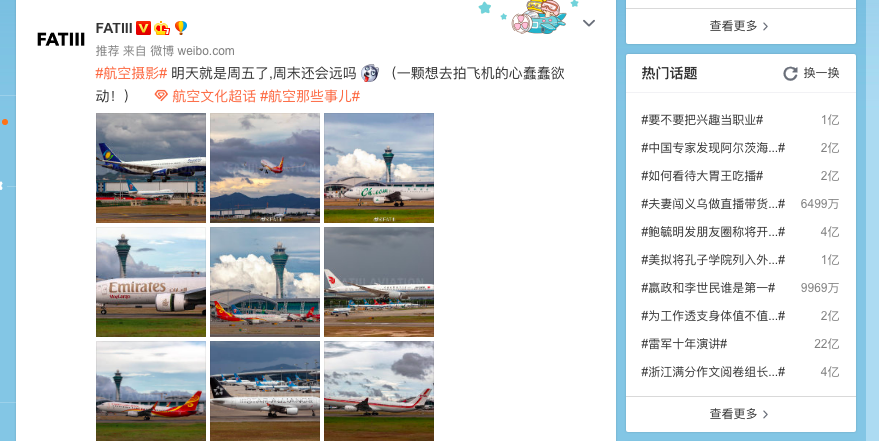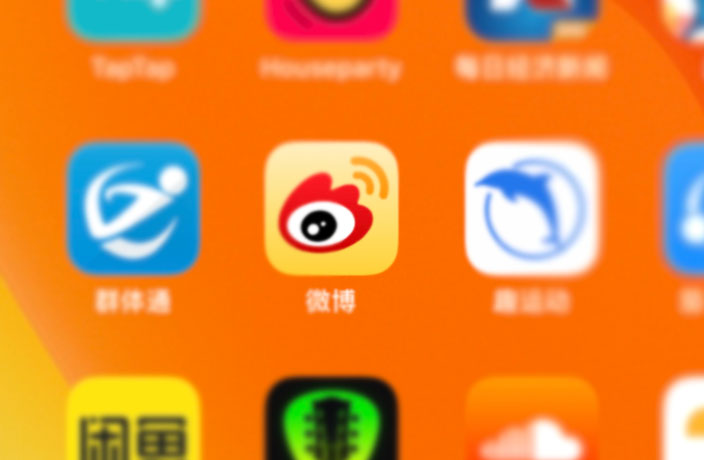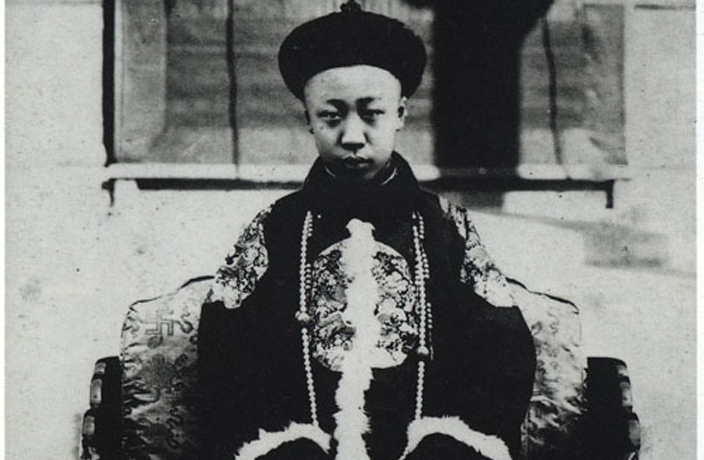Sina Corporation launched Chinese microblogging website Sina Weibo (more commonly referred to as Weibo) on August 14, 2009. Weibo has grown into one of the biggest social media platforms in the country over the past decade, with 241 million daily active users (DAU), as of May 2020.
Given the moniker ‘China’s Twitter,’ the website started three years after the San Francisco-based company. On Weibo, users can share posts of text, images, videos and more to an open online community. It thrives on long storyline-style hashtags, contrary to Twitter’s short and punchy tags.

Trending Weibo hashtags on the right. Screengrab via Weibo
Weibo’s start came at a turbulent time as both Twitter and Fanfou (also considered a Chinese equivalent of Twitter) were temporarily blocked by the government in June 2009 – a result of content deemed ‘sensitive’ by Chinese authorities that was spreading on the platforms. Twitter would later be blocked indefinitely in China.
Sina Corporation gave the go-ahead to launching Weibo after nixing another social networking service called Pengyou, according to Forbes. Sina CEO Charles Chao, a former journalist and accountant, managed to attract the country’s famous figures in entertainment, business and media to the platform, and filled a void in China’s social networking community while still meeting the restrictions set by internet authorities.
Weibo has managed to play a unique role in the discourse on Chinese society. Much like Twitter, the Chinese social media platform is often one of the first places that Chinese citizens will go to share first-hand information and post pictures in the case of an event. With 550 million monthly active users (MAU), it’s common to have Weibo users nearby any major incident in the PRC.
In July 2011, a deadly high-speed train collision in Zhejiang province showed the power of Weibo in spreading real-time information of the tragic event. Here’s an excerpt from Huatong Sun in her 2013 paper titled ‘Sina Weibo of China: From a Copycat to a Local Uptake of a Global Technology Assemblage’:
“What was happening on Sina Weibo was remarkable. I saw pictures of passengers trapped inside trains at dark night, derailed car dangling off the bridge, mighty tractors crushing mangled cars on the ground to bury the wreckage on site and therefore cover up the tragedy, and so on…
Many Chinese citizens devoured the information about the accident on Sina Weibo as earnestly as I did. As time passed, the informed public got more and more upset about the ways the Railway Ministry handled the accident and eschewed their responsibilities.
People were agitated and furious when the spokesman used bureaucratic rhetoric to diminish the consequences of the accident at the first press conference 26 hours after the collision.
Almost 10 million pieces of online criticisms were posted during the following five days (Anti, 2012), ultimately resulting in a reversed official stance and a more thorough investigation.”
In recent years, Weibo has also suffered from the proliferation of fake news, much like its Western counterparts Twitter and Facebook. However, Chinese internet censors have much more authority in removing content classified as misinformation and disinformation.
In July 2020, Sina Corporation received a USD2.68 billion takeover offer by a holding company called New Wave, which is led by Chao, Reuters reported.
READ MORE: WeChat and Weibo Just Got More Strict on Content Rules
For more history stories, click here.
[Cover image via That’s]






















0 User Comments